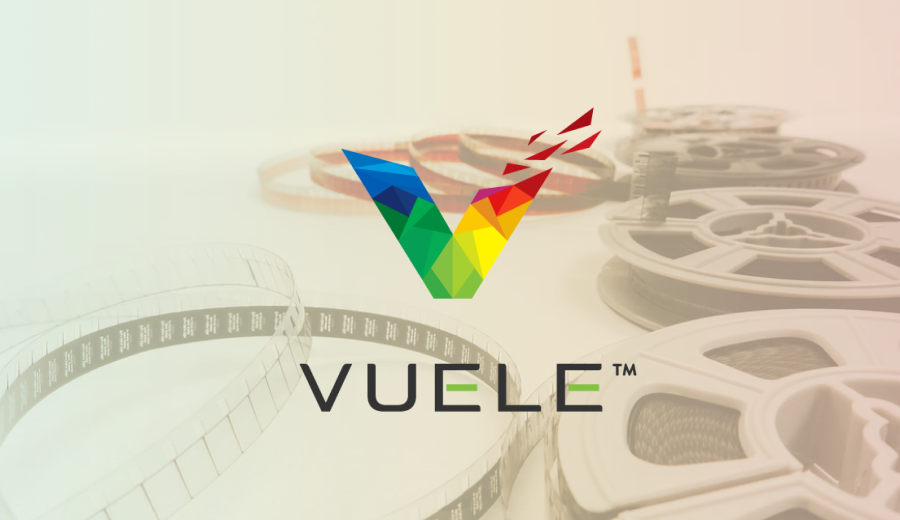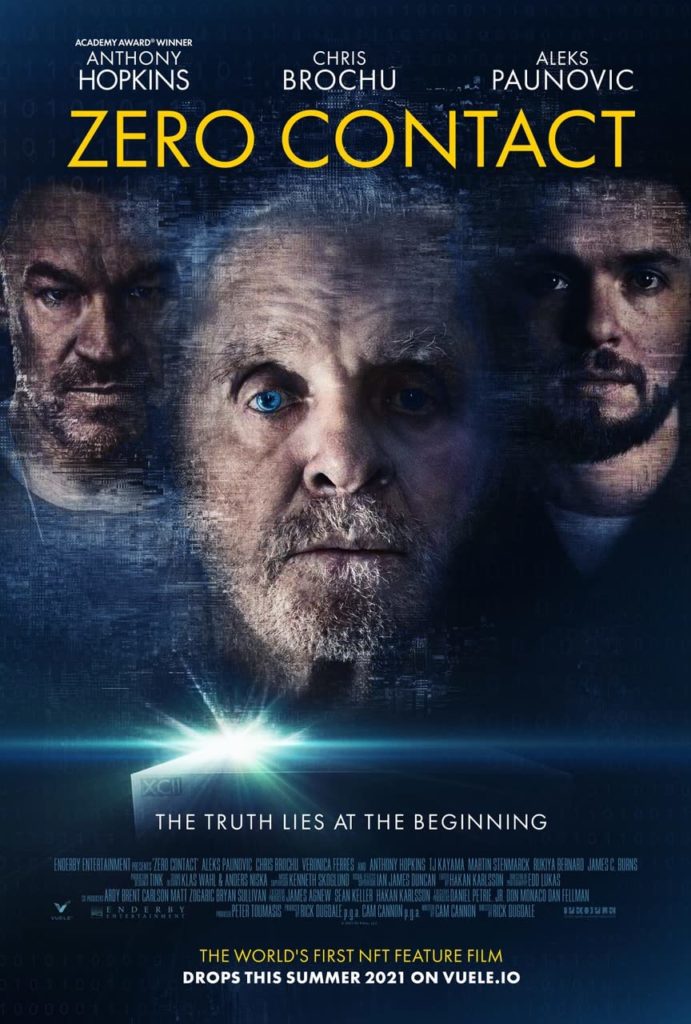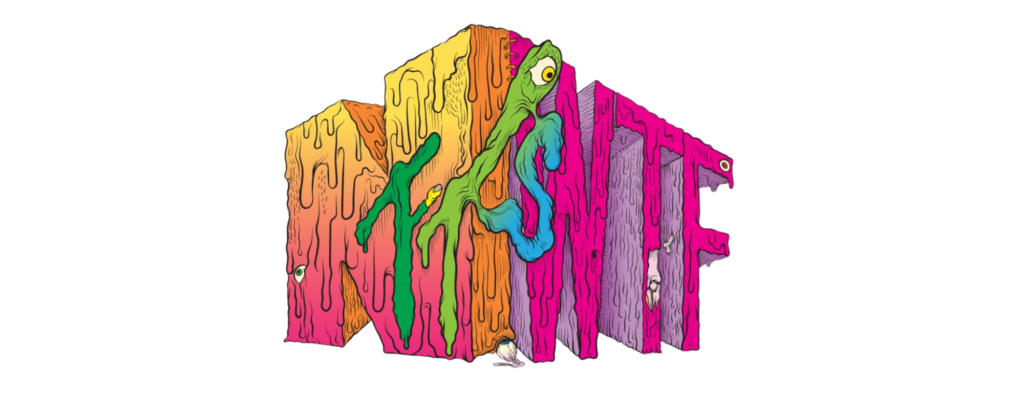In his latest film, ‘Zero Contact,’ Anthony Hopkins plays the role of Finley Hart, a tech titan whose final creation is a machine, positioned to be the solution to humankind’s problems but potentially the catalyst for its demise. The film follows five characters from across the world, connected only by their love and admiration of Hart and their journey to shut down the machine before it’s too late. The expected premiere date for the film is early to mid-September.
The two-time Oscar winner is no stranger to playing characters who create advanced technologies and deal with their consequences, having played such a role in the HBO hit series’ ‘WestWorld.’
The themes of the film blend into its creation and distribution. Positioned as the first NFT feature film, ‘Zero Contact’ is paving the way for the future relationship between NFTs and the entertainment industry.
Below are five essential things to know about the first prominent NFT film: ‘Zero Contact.’
1. Zero Contact’ will premiere on NFT Viewing Platform: Vuele
Vuele, an LA-based tech start-up, considers itself ”the first-ever direct-to-consumer viewing platform utilizing NFT technology” and has a membership model allowing its customers to watch, collect, sell and trade the platform’s exclusive NFT content. The company was formed from a collaboration between Currencyworks, a fintech firm, and Enderby Entertainment. Although the use of blockchain-powered technology for the distribution of entertainment content has been a topic of conversation for some time, according to Richard Thompson, an entertainment tech lawyer, the specific relationship between NFT technology and the entertainment industry is a novel concept.

2. The Film will premiere with 4 to 5 tiered NFT drops
The initial one-of-one NFT will grant the owner early access to the film, alongside collectible content such as bonus features and never-before-seen footage. Cameron Chell, co-head of Vuele, stated that the NFT version adds a new feature to the movie lover’s experience, similar to how they once collected DVDs or Blu-Rays.
“We view this as a way for people to get to see a premiere of a special edition of this movie, even before it hits theatrical premieres.” Chell said.
“And, it’s focused on those people that want to see this latest content and want to own a piece of something unique and scarce. This caters to their collector mentality. We think that there’s a market for people who want to own unique content and be able to build on their own digital collections,” he added.
Additional NFT drops will be tiered in value for content, exclusivity, and initial sale price. In addition, each NFT owner can display and trade their NFTs on the Vuele platform. Chell considers NFTs to be the “next frontier for Hollywood,” and said concerning the impact of Zero Contact’s unconventional release, that “[it’s] just the beginning for NFT capabilities, which will set new standards of how movies will be consumed by fans and collectors.”
3. The Film was Produced Entirely Virtually During the 2020 Global Pandemic
The film was produced entirely virtually, shooting using Zoom amid the 2020 global pandemic. Producer and director Rick Dugdale stated that the fundamental nature of the film is “unconventional, from the way we shot it using remote production, to its distribution.”
‘Zero Contact’ was shot in 17 countries, with some scenes being filmed from within the actors’ own homes. Dugdale explains, “Once we found the right script allowing us to lean heavily on virtual footage, all the elements started coming together to produce, direct and shoot the entire movie remotely using unconventional platforms, online technology and even security cameras.”
This groundbreaking style of filmmaking could set the stage for the future of filmmaking, not simply its distribution and additional elements.
4. NBA Top Shot’s Success Inspired Cameron Chell
NBA Top Shot Ntfs’ overwhelming success was a catalyst for Chell to move forward on his interest in NFTs and film. NBA Top Shot is a hosted site where fans and investors can purchase ‘moments’ in their favorite NBA players’ history. For example, a digital collectible of a LeBron James dunk sold for $208,000. The success of numerous NFT projects has highlighted the power of monetizing communities, both for individuals and the companies that represent them.
“Creating an entire community and an economy around something that people have passion in seemed very, very viable,” Chell said
“We could see the demand anywhere from, you know, a million dollars for the rarest NFT down to $20 for the most common NFT,” he explained.
‘Zero Contact’ NFT owners will be the first of their kind and pave the way for what it means to bring together digital asset ownership and entertainment.
5. The Unique Distribution will Raise Questions on What a Film NFT Owner Owns
One of the unique characteristics of NFT technology is that it can position the holders of each NFT as an owner. But in the case of film, where ownership and intellectual property rights can get muddy, the question of what NFT holders actually own is still up in the air. Similarly, questions have been raised about what Top Shot NFT ‘moment’ owners actually own and how they can legally re-distribute their NFTs.
As of the publication of this article, the details of what precisely each ‘Zero Contact’ NFT owner actually owns are unknown. The company also states that all NFTs will be displayed and sold via their website (much like NBA Top Shot), not mentioning if owners can transfer these NFTs to their own digital wallets.
As far as the value for the original intellectual property owners, Chell said they will profit from a portion of NFT sales on the primary and secondary market, and eventually on the sale of the film to “traditional distribution” channels, such as streaming services. Vuele acquired the full rights to the film, and therefore its intellectual property and will use the film as a case study for future negotiations with content creators.
Main featured image courtesy of IMDB.com



